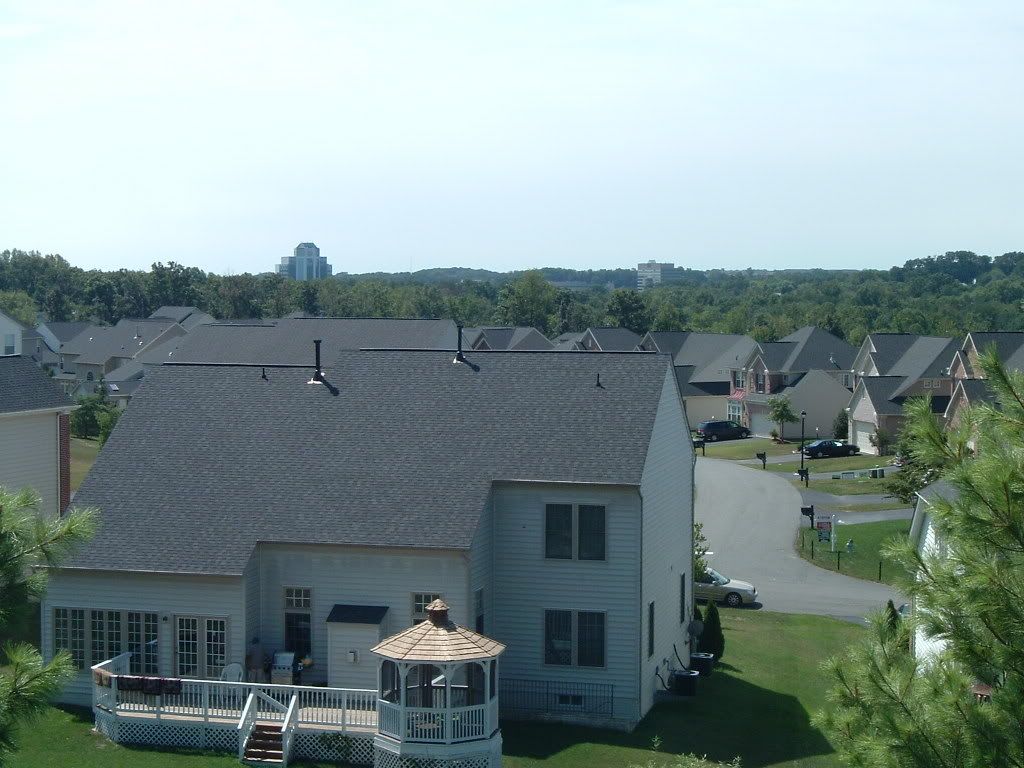 The Neighbors are getting smug in the wake of the primary election - note that a link to their anti-developer pamphlet Where Are The Brakes? has appeared on the left side of their homepage.
The Neighbors are getting smug in the wake of the primary election - note that a link to their anti-developer pamphlet Where Are The Brakes? has appeared on the left side of their homepage.For the time being, though, the Development Train continues to roll through Montgomery County and other Washington, D.C. environs, leaving in their wake some very strange subdivision names. In Denver, the process of naming these new neighborhoods has gotten a little easier with one blogger's Guide to Suburban Denver Subdivision Names. I can just see "The Plantation at Horizon Valley Highlands" squeezed into a "NEW HOMES" sign by some highway forty miles into Loudoun County or wherever.

3 comments:
Thank you for standing up to Neighbors for a Whiter Montgomery. If Ike Leggett misreads the will of the voters and follows their head-in-the-sand approach to dealing with the challenges of demographic change, he will betray his most loyal constituency base: immigrants and minorities. Neighbors for a Whiter Montgomery caters to wealthy white homeowners who fear demographic change. They are opposed to affordable housing although they are expert at doublespeak and claim to support it.
So Neighbors, a group that endorsed Leggett, Ervin, Hugh Bailey, Tom Perez, has an anti-minority agenda? You really can't handle the fact that Steve Silverman lost the race, can you?
I don't give a hoot about Steve Silverman. I didn't vote for him. Neighbors for a Whiter Montgomery did not endorse Tom Perez in 2002; they endorsed Cynthia Rubenstein. They claimed to endorse Valerie Ervin and Hugh Baily but then left them both off their communication with the voters.
Ike Leggett (whom I voted for) cynically adopted the anti-growth rhetoric of the civic extremists because he (correctly) diagnosed that it was the way to win the confidence of certain highly-motivated people who would work hard to achieve their desired outcome in this election. He doesn't believe in the Neighbors for a Whiter Montgomery platform but he accepted their endorsement because he thought it would help him put together a winning coalition.
Ike's real electoral base -- African Americans -- do not support the anti-growth platform because, by and large, they correctly see that it will lead to fewer job and housing opportunities for the African-American community. In speaking to African-American audiences, Ike never talked about slowing growth.
Post a Comment